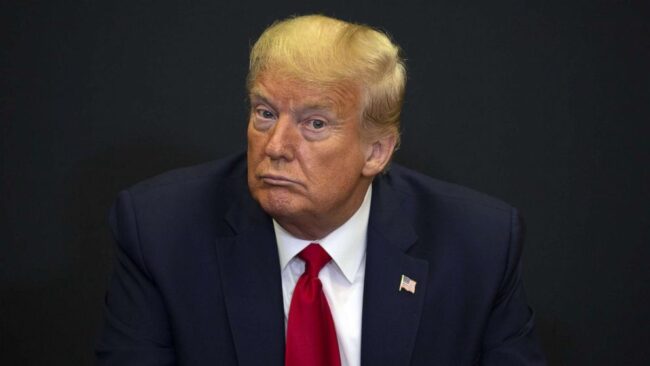United States President-elect Donald Trump was sentenced on Friday, January 10, 2025, for covering up hush money payments to a porn star, Stormy Daniels.
Trump attempted to frustrate a process that would make him the first felon in the White House but the judge declined to impose any punishment.
Trump received the mildest criminal sanction available, an unconditional discharge – a relatively uncommon measure.
The outcome allows Trump to return to the White House unencumbered by the threat of a jail term or a fine, while also ensuring he will become the first person convicted of a felony to assume the presidency.
The trial saw Trump forced to look on as a string of witnesses testified that he had fraudulently covered up illicit payments to Daniels in an effort to stop her disclosing their tryst ahead of the 2016 presidential election, which he ultimately won.
Daniels gave toe-curling testimony that included details about her sexual encounter with Trump – which he has always denied – as well as his flirting and interest in the adult film industry.
The judge intervened to stop more explicit testimony.
Trump had made an eleventh-hour plea for a suspension of the criminal proceedings to the nation’s highest court after a New York State appeals court dismissed his effort to have the hearing delayed, and the state’s top court declined to act on the request.
U.S. Supreme Court rejects Trump’s bid to stop hush money sentencing
But the Supreme Court ruled that the sentencing could proceed.
Prosecutors opposed the effort to stave off sentencing, 10 days before Trump is due to be sworn in for a second term, arguing it was wrong for the apex court to hear the case when the mogul still had avenues of appeal to pursue in New York.
“This Court lacks jurisdiction over a state court’s management of an ongoing criminal trial when defendant has not exhausted his state-law remedies,” the prosecution told the Supreme Court on Thursday.
78-year-old Trump had potentially faced up to four years in prison, AFP reported.
“He’s sticking his middle finger at the judge, the jury, the system of justice, and laughing,” said Pace University law professor and former prosecutor Bennett Gershman.
Trump’s counsel had argued sentencing should be postponed while the Republican appeals his conviction, but New York state Associate Justice Ellen Gesmer rejected that on Tuesday.
Trump’s lawyers additionally claimed the immunity from prosecution granted to a U.S. president should be extended to a president-elect – Gesmer also brushed those arguments aside.
His attorneys had further sought to have the case dismissed based on the Supreme Court’s landmark ruling last year, which stated former U.S. presidents have sweeping immunity from prosecution for a range of official acts committed while in office.
Trump was certified as the winner of the 2024 presidential election on Monday, four years after his supporters rioted at the U.S. Capitol as he sought to overturn his 2020 defeat.
- 2027: Tinubu inaugurates c’tee on conflict resolution, mobilisation for APC - December 24, 2025
- 2 Kano lawmakers die in one day - December 24, 2025
- Christmas: Tinubu urges Nigerians to embrace peace, unity, religious tolerance - December 24, 2025









